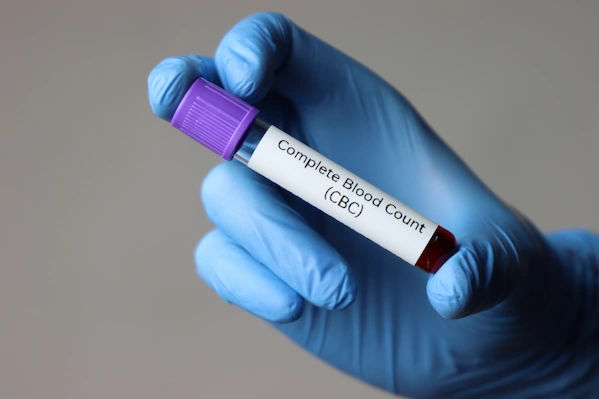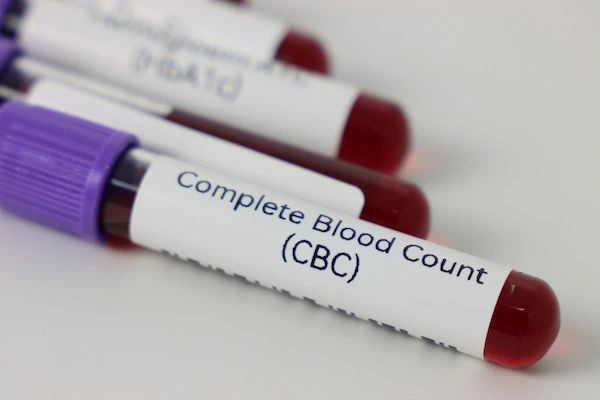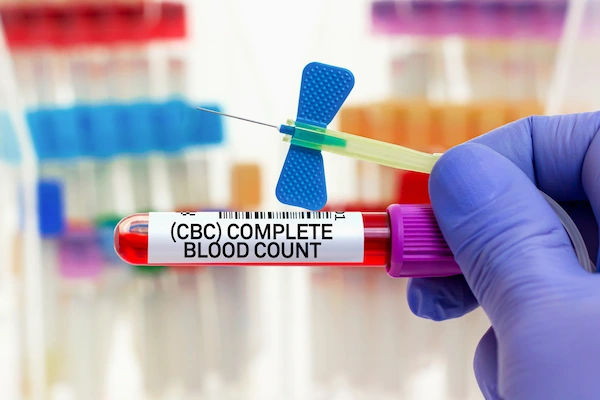How FSH and LH Levels Affect Your Ability to Conceive?
Trying to conceive? Learn how FSH and LH hormone levels affect ovulation and fertility. Discover when to test, what your results mean, and how they support your pregnancy journey.

Written by
Last updated on 17th Jul, 2025

If you are trying to conceive, you have likely started exploring how hormones influence reproductive health. Two of the most important hormones in this process are Follicle-Stimulating Hormone (FSH) and Luteinizing Hormone (LH). Both are produced by the pituitary gland and are essential for regulating a woman’s menstrual cycle and ovulation.
Understanding how FSH and LH work together to support egg development and release can help you better identify your fertile window and improve your chances of becoming pregnant. Abnormal levels of these hormones may signal an underlying condition that could make conception more difficult. Fortunately, a simple blood test can measure your FSH and LH levels. These results can help your healthcare provider evaluate how well your ovaries are functioning, determine if you are ovulating, and recommend appropriate next steps if you are facing challenges with fertility. This guide will explain the role of FSH and LH, how their levels influence conception, and how hormone testing can support your reproductive goals.
Understanding FSH and LH: The Pituitary's Fertility Messengers
The hormones FSH (Follicle-Stimulating Hormone) and LH (Luteinizing Hormone) are key players in the menstrual cycle and fertility. Both are known as gonadotropins and are produced by the pituitary gland, a small but critical gland located at the base of the brain. These hormones serve as chemical messengers, sending signals from the brain to the ovaries to regulate the growth and release of eggs.
- What FSH Does: FSH helps initiate the menstrual cycle by stimulating the growth and development of ovarian follicles. Follicles are small fluid-filled sacs within the ovaries that each contain an immature egg. Each month, FSH encourages a group of these follicles to grow, with one typically becoming dominant. This dominant follicle is the one that will mature and be ready to release an egg during ovulation. FSH also supports the production of estrogen from the growing follicles.
- What LH Does: LH plays a critical role at the midpoint of the cycle. When the dominant follicle is fully mature, LH levels rapidly increase in what is known as the LH surge. This surge triggers ovulation, which is the release of the mature egg from the ovary. After ovulation, LH supports the transformation of the emptied follicle into the corpus luteum. The corpus luteum produces progesterone, a hormone necessary to prepare the uterus for a possible pregnancy.
These hormones must work in balance for regular ovulation and healthy reproductive function. If there is a disruption in their levels or timing, it can affect fertility.
Get Your Reproductive Health Assessed
How FSH and LH Levels Affect Your Ability to Conceive
The balance and timing of FSH and LH levels are vital for healthy ovulation and fertility:
FSH's Impact on Egg Supply and Ovarian Function:
- Normal FSH: Indicates that your ovaries are responding well to the pituitary's signals and that your ovarian reserve (egg supply) is likely healthy.
- High FSH: Especially when measured early in the cycle (Day 2-4), high FSH can indicate diminished ovarian reserve. This means your ovaries are working harder to respond to FSH, suggesting a lower quantity of eggs remaining. High FSH can make natural conception more challenging and may affect the success rates of fertility treatments like IVF.
- Low FSH: Less common, but very low FSH can indicate a problem with the pituitary gland itself, which might prevent proper follicle development.
LH's Impact on Ovulation Timing and Hormonal Balance:
- Normal LH Surge: A clear and timely LH surge is essential for ovulation. Without it, an egg won't be released.
- Absent or Irregular LH Surge: This can lead to anovulation (no ovulation) or irregular ovulation, making it difficult to conceive naturally. This is a common feature in conditions like Polycystic Ovary Syndrome (PCOS).
- High Baseline LH (especially relative to FSH): In PCOS, women often have chronically elevated LH levels (and sometimes an elevated LH:FSH ratio), which can disrupt normal follicle development and prevent regular ovulation.
The FSH:LH Ratio: While not always a definitive diagnostic tool on its own, an elevated LH:FSH ratio (e.g., 2:1 or 3:1) on Day 2-4 of the cycle can be suggestive of PCOS, especially when combined with other symptoms.
When to Take FSH and LH Tests for Fertility
The accuracy and interpretation of FSH and LH levels are highly dependent on the timing of the blood draw within your menstrual cycle.
For Baseline Assessment (Ovarian Reserve & Function):
- When: Day 2, 3, or 4 of your menstrual cycle (counting the first day of full menstrual flow as Day 1).
- Why: At this early follicular phase, FSH and LH levels provide a clear picture of your ovarian function and reserve before dominant follicle selection heavily influences them. This is often done in conjunction with Estradiol (E2) levels.
For Ovulation Confirmation (LH Surge):
- When: Mid-cycle, typically around Day 12-16 in a regular 28-day cycle, or when home ovulation predictor kits (OPKs) suggest a surge.
- Why: A blood test for LH can confirm the LH surge, indicating that ovulation is imminent (usually within 24-36 hours). This is less common as a routine test, but can be used for precise timing in some cases.
Important Note: Always consult your doctor or fertility specialist for precise instructions on when to take these tests, as individual circumstances and cycle irregularities may require specific timing.
Interpreting FSH and LH Levels for Conception
Your doctor will interpret your FSH and LH levels in conjunction with your age, medical history, other hormone levels (like Estradiol and AMH), and clinical symptoms.
- Optimal for Conception: Generally, a Day 2-4 FSH level that is within the normal range (e.g., typically below 10 mIU/mL, though ideal is often lower) and a balanced LH: FSH ratio are considered favourable. A clear LH surge mid-cycle indicates ovulation.
- Challenges with High FSH: Suggests diminished ovarian reserve. While conception is possible, it may be more challenging, and fertility treatments might require higher medication doses or alternative approaches.
- Challenges with Imbalanced LH (e.g., in PCOS): Chronically high LH or an abnormal LH: FSH ratio can indicate ovulatory dysfunction. Treatment often focuses on restoring regular ovulation.
Understanding these results helps your doctor tailor advice, whether it's optimising natural conception timing, considering ovulation induction, or exploring assisted reproductive technologies like IUI or IVF.
Book Your FSH and LH Tests via Apollo 24|7
If your doctor recommends FSH and LH tests to assess your fertility, choosing a reliable and convenient testing service is important. Apollo 24|7 makes this simple by providing accurate lab tests with quick results. This helps you and your doctor understand your hormonal balance clearly and create a personalised plan for your reproductive journey.
Why Choose Apollo 24|7 for Your Fertility Hormone Testing?
- Comprehensive Test Panels: You can choose to book a standalone FSH and LH Test or opt for a comprehensive package like the Apollo Fertility Profile Female, which includes these and additional hormone checks (such as AMH, Prolactin, Estradiol, and TSH) for a complete picture of female reproductive health and fertility potential.
- NABL-Accredited Labs: Tests are done in labs certified by the National Accreditation Board for Testing and Calibration Laboratories (NABL), ensuring accurate and trustworthy results.
- Home Sample Collection: Enjoy the convenience of blood sample collection at your home, saving you time and providing privacy, which is ideal for precise cycle-timed tests.
- Easy Online Booking: Schedule your test quickly and easily through the Apollo 24|7 app or website, allowing you to select specific dates that align with your cycle.
- Fast Digital Reports: Receive secure, detailed test reports online promptly, ready to share with your doctor for timely interpretation.
- Trusted name: Benefit from the trusted expertise and healthcare legacy of Apollo Hospitals Group, one of India’s most respected medical networks.
By choosing Apollo 24|7, you get access to dependable, convenient diagnostic services that make it easier to understand and manage your reproductive health effectively.
For the most accurate and current pricing for FSH and LH Tests, it is best to check the Apollo 24|7 website, use their mobile app, or contact their customer support team directly. Pricing may vary based on your location, available offers, or membership benefits.
Conclusion
For couples trying to conceive, understanding the roles of FSH and LH is paramount. These hormones are the conductors of your menstrual cycle, directly impacting follicle development and ovulation timing. Imbalances can signal underlying fertility challenges, while optimal levels indicate a healthy reproductive system.
By undergoing FSH and LH tests at the correct times in your cycle, you empower your doctor to accurately assess your fertility potential and guide you toward the most effective strategies for conception, whether natural or through assisted reproductive technologies. If you're trying to conceive, consult your doctor to discuss how these essential hormone tests can illuminate your path to parenthood.

.webp)



